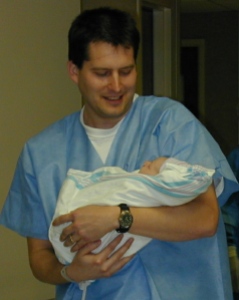God is with us. We are not alone.
Tag: fight for hope
Nothing Can Separate Us From God’s Love
In the book I am writing, the main character tells her friend, Stephen, about meeting the Jewel Maker. Their conversation tells us a lot about Stephen and about the Jewel Maker.
“Has He talked to you, too?”
“From time to time, yes. Like you, He speaks words of healing to me.”
“What does He tell you?”
Stephen’s face clouded. “That He loves me.”
“Why do you look so sad when you say it?”
“The shame I feel about not going after Jade covers me and makes it hard for me to really believe His words, even when I know they are true. His words seem to roll off, instead of reaching my heart. I am uneasy in His presence. I am nervous, although He is only ever kind and loving.” – Angkura: The Fight for Hope
Although my story is fiction, shame is real. Shame is the intensely painful feeling that we are unworthy of love and belonging. (Brene Brown)
And thought the majority of us never talk about it, we’ve felt the blush of shame running over us. We’ve had times when we couldn’t even look ourselves in the eye in the mirror, much less open ourselves up to get close to others.
Shame is a fungus. It flourishes in the dark, covering us with its lies. Shame separates us from God by convincing us that that though God’s love is real, it is not meant for us. Shame works overtime to make sure we feel alone, and that we stay alone. Eventually it convinces us that we are alone.
Shame convinces us that we are the only ones who make mistakes, the only ones who numb emotional pain through food, sex, video games, or mindless TV shows. Or by staying too busy to think or to feel.
The numbing only works for so long. We feel horrible about our actions, and resolve to not give in next time. But shame dives in and convinces us that we are worthless and stupid to think we could ever change.
The longer we are quiet about our shame, the stronger its voice grows.
Lets turn on the light and look at truth.
What does God say to us? He says I love you.
He says it through His Word, He says it by providing a way for us to know Him, He says it through the beautiful sunrises and sunsets. He can even say it through the smile of a stranger.
“Fear not, for I have redeemed you;
I have called you by name, you are mine.
2 When you pass through the waters, I will be with you;
and through the rivers, they shall not overwhelm you;
when you walk through fire you shall not be burned,
and the flame shall not consume you.
3 For I am the Lord your God,
the Holy One of Israel, your Savior…
4 Because you are precious in my eyes,
and honored, and I love you… Isaiah 43: 1-4
God says I have called you by name. You are mine precious, loved.
Shame pours over us, like a relentless waterfall, seeking to wash the truth away. But even if just a smidge of truth gets in, hold on to it.Truth is worth fighting for.
In these beginning days of October, we’ve seen that God’s love is lavish and extravagant. His love never ends, and His compassion toward us is as abundant as His love. And now, today’s beautiful truth – Nothing can separate us from His love. Nothing – not even the darkness within us. God’s love is real even when we don’t really feel it.
In the warmth of His marvelous light we find life.
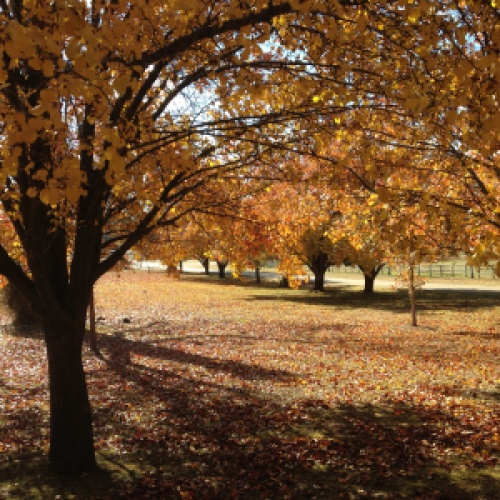
God’s Love is Steadfast
The house was messy. I was messy. And my friend just walked right into all the messiness. I was sitting in the playroom floor, my 3 little ones playing beside me, and I was sobbing. She didn’t knock, so I didn’t have time to wipe my eyes, or to get myself together.
“What’s going on?” she asked as she put her two little ones on the floor to play with mine.
“I’m starting to believe that God really doesn’t love me.”
This feeling had been pressing harder and harder on my heart, and circumstances seemed to prove its truth.
I listened to the lies whispered in the darkness. I forgot God’s promises to never leave me. I stopped believing what God said about Himself and about His love for me. It was time for some truth.
Hesed means steadfast love. It is a special word in Hebrew that describes the loving devotion God has toward His people which causes Him to bind Himself to His people. It indicates His lovingkindness toward those with whom He is in covenant relationship.
Lamentations 22-24: The steadfast love of the Lord never ceases, His mercies never come to an end; they are new every morning; great is Your faithfulness. “The Lord is my portion,” says my soul, “therefore I will hope in him.”
Psalm 36:5 – Your steadfast love, O Lord, extends to the heavens, your faithfulness to the clouds.
Psalm 86:5 – For you, O Lord, are good and forgiving, abounding in steadfast love to all who call upon you.
I love the language of hesed: steadfast, loving devotion, binding Himself to His people, lovingkindness.
We have a tendency to keep God at arms length (a safe distance), elbows locked tight. We can acknowledge that God loves us, but this hesed, this loving devotion God has toward us, doesn’t use keep-at-a-distance language. It is the language of a God who has pursued us, fought for us, from Genesis to the cross, until eternity begins. This powerful, overwhelming love, should we receive it, could completely change the way we relate to God. Because it shows us how God sees us. Worthy of being pursued, worthy of fighting for, worth the cost, precious, loved.
We say what we think, but we live what we believe.
“If we believe we are loved, then we can let go of idols in our lives, let go of addictions that ruin us, let go of relationships that harm us, let go…and breathe. Let go and live in joy.” Ann Voskamp
The Writing Life: Toggling Between Worlds
My husband walked in and gave me a strange look.
“Have you been sitting there this whole time?”
It’s not that he has anything against me sitting. Especially in my comfy reading chair surrounded by a stack of books, papers, and a cup of coffee. It’s just unusual for me to stay in one place for very long.
I raised my coffee cup to my lips to give me a few seconds to think of an answer. My coffee was hot when I sat down, but now it was ice-cold.
“It depends on your definition of ‘sitting there’.” I replied with a smile.
My bottom had been firmly planted in that chair, but I had not just been “sitting there.”
During that time I rescued 3 of my characters who were trapped on the side of a mountain.
I also researched how to write a sword fighting scene, since one of my characters was about to face off with an enemy, and I’ve never held a sword in my life.
“Sitting there” sounds so passive, so un-creative. I’d been toggling, and toggling is an action verb.
To “toggle” is to switch from one setting to another. For me, and probably any other fiction writer, it is the act of switching from one world to another.
I’ve been toggling for months now as I’ve worked on this story. Many days I feel like I have one foot in reality and the other foot in the world I’ve created. I try to limit my toggling to my writing time, but sometimes problems and solutions toggle between the worlds as well.
The world I’ve created is beautiful. Hopeland is a combination of my favorite places: Mississippi, the Smokey mountains, and Ukraine. But this beautiful world has a problem. Hopeland is being destroyed and its characters must fight for hope in order to defeat the forces of evil. These characters aren’t strong or powerful, and victory feels impossible.
This started out as an adventure story for my children, but it has grown into so much more.
It is a letter to my younger self about what is really worth pursuing.
It is a guide for my children as they walk through this life.
It is a call for all who read it to fight for hope in spite of circumstances.
It is a fleshing out of my current favorite statement by Dan Allender: “Hope is by far one of the most dangerous commitments we make in life.” and shows that hope is essential to life, and worth every effort to fight for, especially when the outcome seems uncertain.
When I look around at this world, I see the need for hope. I see a generation of children who need to know how to fight for hope, how to have courage to do the right thing at the right time. They need to experience the strength hope gives us to fight the battles in our lives. Through this story, I want to show my children (and other readers) what the fight for hope looks like by describing how a character their age courageously fights. And possibly, when the battle begins for them, they will remember their friends in Hopeland and find the courage to fight for hope in this world.
This will definitely involve many more cold coffee moments as I toggle between worlds in my comfy chair.
Hope In the Pit
At one time or another, we’ve all been in the pit.
There are different ways we end up there, but the feelings are the same. Trapped. Helpless. Stuck.
Maybe you allowed your anger to run freely and the words flew out before you could stop them. You know there is no way to take them back or to undo the wounds you’ve caused.
Maybe you are 15, pregnant and unsure about what the future holds. You were just having fun. You never planned on this happening and now you are scared, alone, and afraid.
Shame runs over, hot and scalding, as you close the website. You know, the one you promised to never go to again. You mean it every time you promise, and yet, in a moment of weakness, you run back to the site and the allure of the pictures. You know you’ll never forget the images you’ve seen there and, to be honest, sometimes you call them up in your mind and feel the excitement all over again. But after the rush of excitement, overwhelming shame takes its place.
Is there a way out? Is there help for us, deep in the pit? Dare we even ask for help when, by our own choices and actions, we’ve dug the hole we are currently sitting in?
We know God is powerful and He can help us, but will He help us when we are the reason we are in the pit?
If He didn’t help, none of us would have hope. We would stay stuck and helpless forever.
He doesn’t just pick us out of the pit, dust us off, fluff our hair and tell us to get back to life, the way we might do to a child who has skinned their knee. God loves us too much to ignore the darkness inside of us that led us to the pit in the first place. He pours His love on us as he deals with us though a painful process that involves these steps: Confrontation. Confession. Repentance. Forgiveness. Through this process, He opens our eyes to the darkness inside our hearts, shows us our deep need of Him, and lavishly forgives us.
The life of David offers us an example of how God deals with us in the pit in 1 Samuel 11:2-12:24.
David was described as being a man after God’s own heart, and yet he dug himself into a deep, dark pit during the whole Bathsheba scandal. If you haven’t read it, the short version is that David saw Bathsheba’s beauty, slept with her, and had her husband (one of his own soldiers) killed in battle when she became pregnant. Then he brought her over to the palace to be his wife. The secrecy, deception, betrayal, and abuse of power here is horrendous.
And God saw every move David made.
Did God stop loving David? No. He loved him too much to let him keep these horrible actions hidden. He loved David enough to bring these actions into the light where they could be dealt with, where forgiveness could be given, and David’s relationship with God could be restored. He sent Nathan to confront David. And once David admitted to his wrong, the process continued.
The Psalms that David wrote during this time describe this progression.
In Psalm 38, David writes about the physical effects of his sin. He is overwhelmed by guilt and calls out to God for help.
Because of your wrath there is no health in my body;
there is no soundness in my bones because of my sin.
My guilt has overwhelmed me
like a burden too heavy to bear.
In Psalm 51, David calls out for God’s forgiveness. He asks to be cleansed and restored. He doesn’t make excuses for his actions. He owns up to them. This is repentance.
Have mercy on me, O God,
according to your unfailing love;
according to your great compassion
blot out my transgressions.
Wash away all my iniquity
and cleanse me from my sin.
For I know my transgressions,
and my sin is always before me.
In Psalm 103, David feels God’s forgiveness, and feels restored to fellowship with God. The whole tone of this Psalm is praise. David knows he has been forgiven.
Praise the Lord, my soul;
all my inmost being, praise his holy name.
Praise the Lord, my soul,
and forget not all his benefits—
who forgives all your sins
and heals all your diseases,
who redeems your life from the pit
and crowns you with love and compassion,
who satisfies your desires with good things
so that your youth is renewed like the eagle’s.
Just as God loved David too much to let his actions stay hidden, He will also bring our dark deeds into the light in order to get us out of the pit.
Confrontation. Confession. Repentance. Forgiveness.
Forgiveness does not erase the consequences of our actions. There is a sowing and reaping effect in our lives. If we do things that eat holes in our soul, then we will have a soul filled with holes and a distant relationship with God. Thankfully, our story does not end there. There is hope because there is grace. Beautiful, messy grace.
David received this messy grace. God named the consequences David would have to endure. “You did it in secret, but I will do this thing in broad daylight before all Israel.” As a result of David’s actions, there was tragedy, humiliation, and shame in his family for years to come. Yet there were also blessings in David’s life. Messy grace.
We also have access to this messy grace.
God’s messy grace slides in and around the consequences and fills up the holes in our soul, breathing life in the midst of heartache.
Because of God’s messy grace we take steps to repair broken relationships.
Because of God’s messy grace we rejoice over a new life in spite of the circumstances.
Because of God’s messy grace we recognize our brokenness and seek help.
Because of God’s messy grace, there is hope, and a way out of the pit.
For with the Lord there is steadfast love, and with Him is plentiful redemption.” Psalm 130:7
The Chapter I Didn’t Want In my Story
Has the story of your life ever taken an unexpected turn and left you sitting in the dark, wondering what happened?
There are chapters in the story of each of our lives that we didn’t ask for, and if given a choice we would have said “No thank you,” for who in their right mind would say yes to trauma, suffering or disaster?
The chapter I didn’t want in my story is my family’s journey with Epilepsy.
Our journey began on a Saturday afternoon in November, 2006. It had been an ordinary day, filled with caring for Anderson, who was 3, and Maggie who had just turned 1. The colorful leaves and the crisp breeze drifting through my open windows made the walls of our home seem stifling. I bundled everyone up to go outside. It was a slow process. I was very pregnant with Ellen, waddling around getting everyone’s socks and shoes together. Then Maggie’s seizure hit and suddenly I was in ambulance, sirens blaring, wondering what happened to my normal day.
Maggie continued to have seizures every few months, and we had no idea what was causing them. When Ellen was 18 months old, she began having seizures as well. Another chapter I didn’t want in my story.
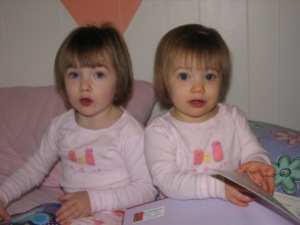
After a million questions, hours of research, and keeping a detailed journal, we figured out that heat, internal or external, was the trigger for their seizures. We also found a medication combination that worked well. Ellen has been seizure free for 4 years, and Maggie has been seizure free for 3 years. They don’t remember ever having seizures. It’s such a twist of irony that the biggest trauma I’ve experienced thus far as a parent is non-existent to my children.
But I’m so glad.I don’t want them controlled by fear. Fear eats away at hope. And at 8 and 9 years old, there is a lot to be hopeful about.
I did not feel hopeful in those early years, filled with uncertainty. The triplets of destruction – anger, fear, and despair – had a hold on me for a while.
Though things have settled, our journey hits me full force at the beginning of each school year when I meet with the girls’ teachers. I hope we never have an episode at school, but if it does happen, I want the adults caring for my girls to be as prepared as possible. And I realize that I may also be preparing them to help another child down the road.
I still have days when I wish we weren’t on this journey. I have days when my mind goes too far into the what ifs. The fight for hope keeps me balanced on those days. The fight for hope keeps my focus on what I CAN do.
My goal through this journey has been to allow my children to have as normal a childhood as possible and still be safe. We have learned to modify our activities. We go to the beach in October instead of the heat of summer. We play outside in spring and fall as much as possible. The girls are aware of their limitations, but I never want them to be defined by their limitations.
I want to travel this road well. Although they may not remember having seizures, one day my children may be right where I am, raising children who have seizures. I want to be able to offer them hope for their journey.
I don’t understand exactly how, but God has worked through this unwanted chapter in my life. Over the years, He has woven beauty into the sorrow, reaching places in my heart that would have otherwise gone untouched and unchanged. He has used this journey to build my “fighting for hope” muscles. And I need those muscles to experience joy in the unwanted chapters of my life.
#thefightforhope
The Hope We Were Made For And the Hope We Settle For
Hope seems abstract, but we use, or refuse to use it, every day.
We study for tests in hopes of making a good grade. We make plans, hopeful that they will take place. We give up on a goal, convinced that we are a hopeless failure.
We involve hope in our lives because we were created by the God of hope. We were wired for hope – His hope – before our world became broken. As a result, our hearts long for things to be whole, the way they were meant to be.
“Hope is the quiet, sometimes incessant call to dream for the future. The present moment is not enough to satisfy our souls completely. No matter how good or bad, the now leaves us hungering for more. And our insatiable quest for more is the root system of biblical hope.” (The Healing Path)
And though this hope is filled with longing, it is steady, because it is rooted in the person and character of God.
When we see injustice, when we feel let down in relationships, Biblical hope presents us with two simultaneous truths. It assures us that this is not the way things were meant to be, and reassures us that it is still worth the effort to get as close as possible to the ideal.
“This type of hope enables us to walk bravely into the future, confident things can be better than they are today.” (The Healing Path)
The Reformation Study Bible describes hope in these words: “Hope is certain; it is a ‘sure and steadfast anchor of the soul.’ Hope calls us to be patient. Hope gives us strength and confidence for running the race, fighting the good fight, and enduring the tribulations that continue in this life.”
Can you hear the battle cry resounding out of that definition? Words like strength, confidence, and endurance – tools that we need to fight for hope in this broken world.
If this type of hope gives us this, why would we settle for anything less?
But we do. We settle for a type of hope that fits this description: the feeling that what is wanted can be had or that events will turn out for the best. (dictionary.com) We settle for a cross- your- fingers- and -hope-for-the -best scenario.
This hope hinges on circumstances, and when it fails it drops like lead, dragging us into emotional darkness. This hope is a counterfeit of the hope we were made for. It has similarities, but no lasting value.
“Hope cannot be killed, not ever, but it can be drugged numb and sleepy. Even then it will still function, but in a more material and simplistic manner akin to wishing to win the lottery or anticipating the purchase of a new car.” (The Healing Path)
There is no real, lasting hope without our real and lasting God. He created us to live this adventure called life using His definition of hope. His character is the basis of this hope, so to experience this hope we must know Him. We must know Him based on who He says He is, not based on what we’ve been told about Him or how we’ve defined Him.
We come face to face with Him in His Word. The pages of the Bible are filled with His messages, so that we can know who He is, and who we are in relation to Him.
I realize that the Bible is used by many to act either as a band aid (“Read this verse and get a better attitude”) or a truth stick to bash anyone who has an opposing view. If this has been your experience, dear friend, I am so sorry. God gave us the Bible to tenderly bring our hearts to Him. The Bible is not a weapon to use on each other. It is a weapon to use against darkness, but never to use against those searching to step out of the darkness into His light. In the pages of the Bible we discover that we are deeply loved by God.
In Zephaniah 3:17, God looks at us tenderly, singing songs of joy over us. This verse reminds me of the way we look at our children. When they are born we are overwhelmed with love for them. They have done nothing to deserve that love, and yet we lavish it on them. We look at them in wonder, we sing lullabies over them, and we want the very best for them. Our love for our children is a dim reflection of God’s lavish love for us.
This is the hope we were made for. Hope that does not waver with circumstances but remains as steady as His love for us. This is hope worth fighting for.
Words of Hope
This song brings hope into the depths of my weary heart. I hope it encourages you today!
I’m so glad you are here!
My hope is that this blog will be a place of hope and refreshment for all who visit.
I believe each one of us is wired for hope. Because the world around us is broken, we have to fight for hope, sometimes with every breath.
There is no script for much of life and at times our hope wavers on the edge of the chasm called despair. Our fight for hope in all areas of our lives takes great courage.
“Hope is by far one of the most dangerous commitments we make in life.” Dan B. Allender
My hope is that this will be a community where we, as fighters for hope, can encourage and challenge each other to be brave and to keep fighting.





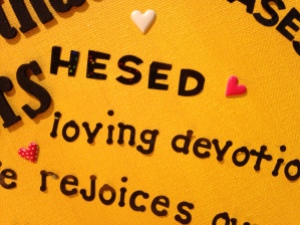


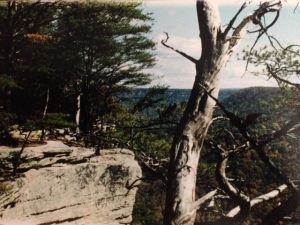



![iceland-498295[1]](https://erinulerich.files.wordpress.com/2015/08/iceland-4982951.jpg?w=300&resize=300%2C199)


![179831_501366228930_7139036_n[2]](https://erinulerich.files.wordpress.com/2015/08/179831_501366228930_7139036_n2.jpg?w=300&resize=300%2C225)
![photo-1433185000771-ec45c869c61b[1]](https://erinulerich.files.wordpress.com/2015/08/photo-1433185000771-ec45c869c61b1.jpg?w=300&resize=300%2C225)
